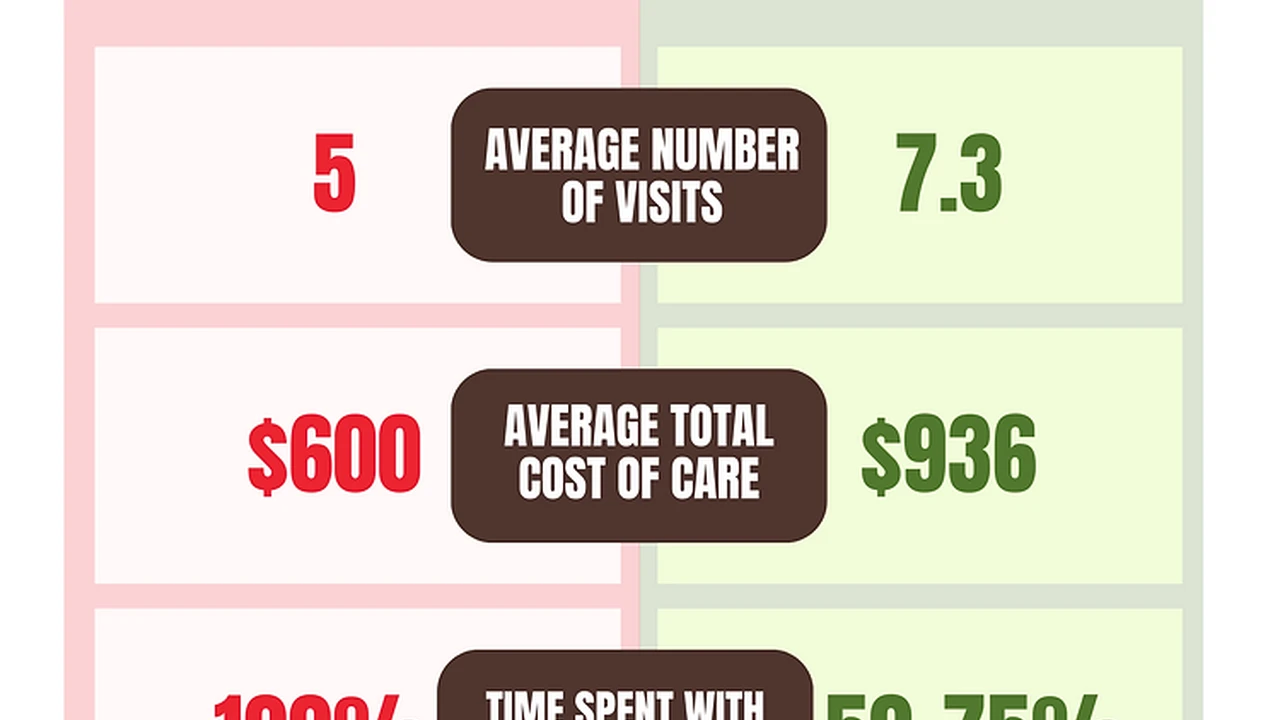Comparing Private Pay vs Insurance for Senior Care
Weigh the advantages and disadvantages of private payment versus utilizing insurance benefits for senior living expenses.

Comparing Private Pay vs Insurance for Senior Care
Understanding Senior Care Funding Options: Private Pay vs Insurance Benefits
Navigating the financial landscape of senior care can feel like a daunting task. As our loved ones age, the need for various levels of support, from independent living to memory care, often arises. A critical decision point for many families is how to fund these services. Broadly, the two main avenues are private pay and utilizing insurance benefits. Each has its own set of advantages, disadvantages, and specific scenarios where it makes the most sense. Let's dive deep into both to help you make an informed choice for your family.
Private Pay for Senior Care: Flexibility and Control
Private pay, at its core, means using your own personal funds or assets to cover the costs of senior care. This can include savings, investments, pensions, Social Security benefits, or even the sale of assets like a home. For many, private pay offers the most flexibility and control over care decisions.
Advantages of Private Pay for Senior Care Funding
- Greater Choice and Flexibility: When you're paying out of pocket, you often have a wider selection of senior living communities and home care agencies to choose from. You're not limited by an insurance provider's network or specific coverage criteria. This means you can prioritize amenities, location, specific care philosophies, or even cultural fit without external restrictions.
- Immediate Access to Care: There's typically no waiting period or approval process when you're paying privately. Once you've identified a suitable option, you can often move forward quickly, which can be crucial in urgent situations.
- No Restrictions on Services: Insurance plans often have limitations on the types or duration of services they'll cover. With private pay, you can tailor the care plan precisely to your loved one's needs, whether it's extra hours of home care, specialized therapies not covered by insurance, or premium amenities in a senior living community.
- Simpler Administration: Dealing with insurance claims, pre-authorizations, and appeals can be time-consuming and frustrating. Private pay eliminates much of this administrative burden, allowing you to focus on your loved one's well-being.
- Negotiation Potential: In some cases, especially with smaller home care agencies or independent living communities, there might be room for negotiation on rates or packages when paying privately, though this is less common with larger facilities.
Disadvantages of Private Pay for Senior Care Expenses
- Significant Financial Burden: The most obvious drawback is the high cost. Senior care, particularly assisted living and memory care, can be incredibly expensive, often ranging from $4,000 to $10,000+ per month. Home care can also add up quickly, especially for extensive hours. This can quickly deplete savings and assets.
- Asset Depletion: Relying solely on private pay can lead to the rapid depletion of an individual's or couple's life savings, potentially impacting their legacy or the financial security of a surviving spouse.
- No Protection Against Catastrophic Costs: Without insurance, you're fully exposed to unexpected or escalating care costs, which can be financially devastating if a loved one's health declines rapidly.
Utilizing Insurance Benefits for Senior Care: Protection and Peace of Mind
Insurance benefits for senior care can come from various sources, including long-term care insurance, certain health insurance plans (like Medicare Advantage), and even life insurance policies with living benefits. The primary appeal of using insurance is the financial protection it offers against the high costs of long-term care.
Types of Insurance Relevant to Senior Care Funding
Long-Term Care Insurance (LTCI) for Senior Care Costs
This is specifically designed to cover services not typically covered by health insurance, Medicare, or Medicaid. It can pay for home care, assisted living, nursing home care, and memory care. Policies vary widely in terms of daily benefit amounts, elimination periods (deductibles), benefit periods, and inflation protection.
- Product Recommendation: Genworth Privileged Choice Flex 3
- Description: A popular LTCI policy offering flexible benefit periods (e.g., 3, 5, 7 years or unlimited), daily benefit amounts (e.g., $150-$300), and inflation protection options (e.g., 3% compound). It covers a wide range of services including home care, assisted living, and nursing home care.
- Use Case: Ideal for individuals in their 50s or early 60s who want to protect their assets from potential long-term care costs and prefer to have control over their care choices.
- Comparison: Compared to older, less flexible policies, Flex 3 offers more customization. It's generally more comprehensive than hybrid policies that combine life insurance with LTCI riders, but also typically has higher standalone premiums.
- Estimated Cost: Premiums can range from $2,000 to $5,000+ annually, depending on age, health, benefit amount, and inflation rider.
- Product Recommendation: Mutual of Omaha Custom Care
- Description: Another strong contender in the LTCI market, known for its customizable options and strong financial backing. Offers similar benefit structures to Genworth, with options for shared care benefits for couples.
- Use Case: Suitable for couples looking for joint coverage that can be shared between them, potentially extending the total benefit period if only one spouse needs extensive care.
- Comparison: Often competes directly with Genworth, with slight differences in underwriting and pricing based on individual health profiles. Mutual of Omaha is often praised for its customer service.
- Estimated Cost: Similar to Genworth, premiums vary widely based on age, health, and chosen benefits.
Hybrid Life Insurance with Long-Term Care Riders for Senior Care Planning
These policies combine a life insurance death benefit with a rider that allows you to access a portion of the death benefit early to pay for long-term care expenses. If you don't use the long-term care benefit, your beneficiaries still receive a death benefit.
- Product Recommendation: Nationwide CareMatters II
- Description: A popular hybrid policy that offers a guaranteed death benefit and a long-term care benefit that can be paid out monthly. It's often funded with a single premium or a limited pay period (e.g., 10 years).
- Use Case: Excellent for individuals who want the security of a death benefit for their heirs but also want protection against long-term care costs, ensuring their premium isn't 'lost' if they never need care.
- Comparison: More expensive than standalone LTCI if you only need the long-term care component, but offers the dual benefit. Simpler underwriting than traditional LTCI for some.
- Estimated Cost: A single premium could be $50,000 to $150,000+, or annual premiums for a limited pay period could be $5,000 to $15,000+.
Medicare Advantage Plans (Part C) for Senior Health and Wellness
While traditional Medicare generally doesn't cover long-term care, some Medicare Advantage plans offer supplemental benefits that can include limited home care services, transportation to medical appointments, and even some meal delivery or personal care assistance. These benefits are typically not extensive enough for full-time long-term care but can be helpful for specific needs.
- Product Recommendation: Humana Gold Plus H5619-001 (Example Plan)
- Description: Many Humana Gold Plus plans offer a range of supplemental benefits beyond traditional Medicare, which can include a personal emergency response system, limited in-home support, or transportation.
- Use Case: For seniors who need some assistance with daily living but not extensive long-term care. It's a good option for those looking to maximize their Medicare benefits.
- Comparison: Benefits vary significantly by plan and region. Always compare specific plan offerings in your zip code. These plans are not a substitute for comprehensive LTCI.
- Estimated Cost: Many plans have $0 monthly premiums beyond your Part B premium, but co-pays and deductibles apply for services.
Advantages of Using Insurance Benefits for Senior Care
- Financial Protection: The primary benefit is safeguarding your assets from the potentially catastrophic costs of long-term care. It provides a safety net.
- Peace of Mind: Knowing that care costs are covered can reduce stress for both the senior and their family, allowing them to focus on quality of life.
- Access to Quality Care: Insurance benefits can enable access to higher-quality facilities or more extensive home care services than might be affordable through private pay alone.
- Tax Benefits: Premiums for qualified long-term care insurance policies may be tax-deductible, and benefits received are generally tax-free.
Disadvantages of Using Insurance Benefits for Senior Care
- High Premiums: Long-term care insurance can be expensive, especially if purchased later in life or with comprehensive benefits. Hybrid policies also come with significant costs.
- Underwriting Process: You typically need to be in good health to qualify for long-term care insurance. If you have pre-existing conditions, you might be denied or face higher premiums.
- Benefit Limitations: Policies have daily or monthly benefit caps, maximum benefit periods, and elimination periods (a waiting period before benefits kick in). If care costs exceed your policy's limits, you'll still need to private pay the difference.
- Complexity: Understanding policy terms, filing claims, and navigating the approval process can be complex and time-consuming.
- Inflation Risk: Without adequate inflation protection, your policy's benefit amount might not keep pace with rising care costs over time.
- Use-It-or-Lose-It (for standalone LTCI): If you never need long-term care, you won't receive any financial benefit from a standalone LTCI policy, unlike hybrid policies.
Comparing Private Pay and Insurance Benefits for Senior Care: Which is Right for You?
The choice between private pay and insurance benefits isn't always an either/or situation; often, it's a blend of both. Here's a comparison to help you weigh your options:
Financial Impact and Risk Management in Senior Care Funding
- Private Pay: High immediate financial burden, direct depletion of assets, no protection against escalating costs.
- Insurance: Manageable ongoing premiums (or a single lump sum), significant protection against catastrophic costs, preserves assets.
Flexibility and Control Over Senior Care Choices
- Private Pay: Maximum flexibility in choosing providers and services, no network restrictions.
- Insurance: Some flexibility, but often limited by policy terms, network providers, and covered services.
Eligibility and Access to Senior Care Services
- Private Pay: No health requirements, immediate access to care.
- Insurance: Requires good health for underwriting, potential waiting periods (elimination period).
Administrative Burden for Senior Care Management
- Private Pay: Minimal administrative hassle.
- Insurance: Can involve complex claims processes and paperwork.
Real-World Scenarios for Senior Care Funding Decisions
Scenario 1: Early Planning and Asset Protection for Senior Care
Situation: A healthy couple in their late 50s with significant assets they wish to preserve for their children and grandchildren.
Recommendation: This is an ideal scenario for Long-Term Care Insurance (LTCI) or a Hybrid Life Insurance with LTC Rider. By purchasing a policy now, they can lock in lower premiums and ensure they qualify while healthy. This protects their estate from being consumed by potential future care costs, allowing them to pass on their wealth as intended.
Scenario 2: Urgent Need for Senior Care with Limited Savings
Situation: An 80-year-old individual experiences a sudden health decline requiring immediate assisted living, but has modest savings and no long-term care insurance.
Recommendation: Initially, this will likely involve private pay using available savings. However, given the limited funds, exploring government programs like Medicaid (if eligible after spending down assets) or veteran benefits (if applicable) becomes crucial. Medicare Advantage plans might offer some limited support, but won't cover the bulk of assisted living costs.
Scenario 3: Moderate Assets and Desire for Home-Based Senior Care
Situation: A 70-year-old individual with a comfortable amount of savings who prefers to age in place at home, needing a few hours of assistance daily.
Recommendation: A combination approach is often best here. Private pay for the initial home care services offers flexibility. If they have a Medicare Advantage plan, they should check if it offers any supplemental benefits for home care. If they had purchased a Long-Term Care Insurance policy earlier, it would cover a significant portion of these home care costs, preserving their savings for other needs or unexpected expenses.
Making Your Senior Care Funding Decision: Key Considerations
When deciding between private pay and insurance, consider these factors:
- Your Current Health and Age: The younger and healthier you are, the easier and more affordable it is to obtain long-term care insurance.
- Your Financial Situation: How much in savings and assets do you have? How much are you comfortable spending out-of-pocket?
- Your Risk Tolerance: Are you comfortable bearing the full financial risk of long-term care yourself, or do you prefer to transfer some of that risk to an insurance company?
- Your Desired Level of Control: How important is it for you to have complete control over every aspect of care selection?
- Family Support: Do you have family members who can provide care, or will you rely entirely on professional services?
- Future Goals: Do you want to preserve an inheritance for your family, or are you comfortable using your assets for your own care?
Ultimately, there's no one-size-fits-all answer. Many financial advisors recommend a balanced approach, where a portion of potential long-term care costs is covered by insurance, and the remainder is planned for through personal savings and investments. It's always a good idea to consult with a financial planner specializing in elder care and an elder law attorney to create a comprehensive plan tailored to your unique circumstances and goals. They can help you understand the nuances of each option and how they apply to your specific situation, ensuring you make the best choices for your senior care journey.
:max_bytes(150000):strip_icc()/277019-baked-pork-chops-with-cream-of-mushroom-soup-DDMFS-beauty-4x3-BG-7505-5762b731cf30447d9cbbbbbf387beafa.jpg)






